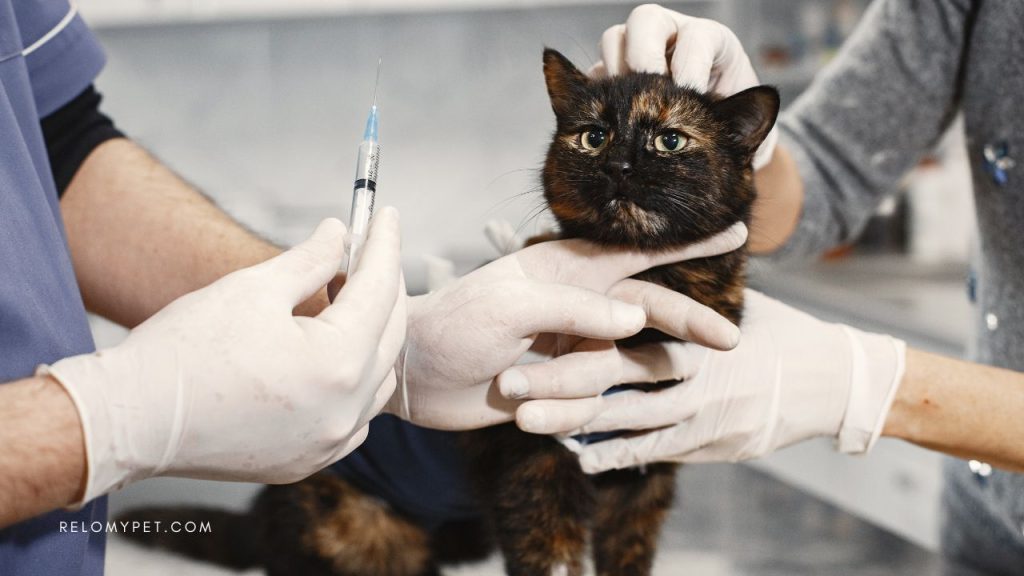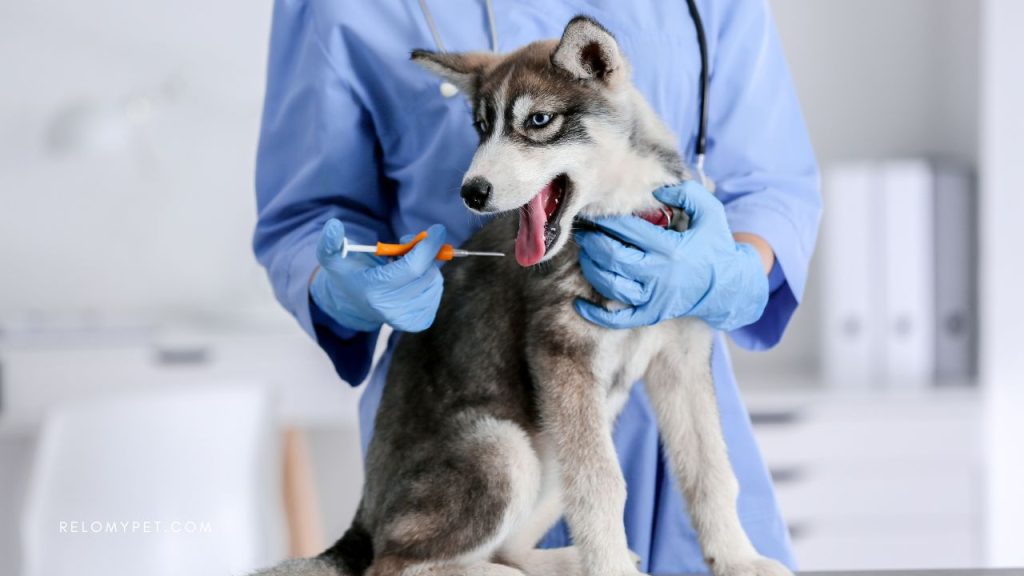Moving with Pets to Saudi Arabia: A Guide to Pet Relocation
Table of Contents
Preparing for the Journey: Essential Steps for Pet Relocation
Moving to a new country can be daunting, especially when you have a beloved pet to accompany you. Follow these essential steps to ensure a seamless transition for your furry companion.
Research Saudi Arabia’s Pet Entry Regulations
Before embarking on this exciting journey, it’s crucial to understand Saudi Arabia’s pet entry regulations. Research the specific requirements for vaccinations, microchipping, and any breed restrictions. Different airlines might also have varying policies, so be sure to check those as well.
In Saudi Arabia, the import of animals is regulated by the Ministry of Environment, Water and Agriculture.

Navigating the Paperwork: Documentation and Legalities
Relocating your pet internationally involves a significant amount of paperwork. To ensure a smooth process, pay attention to the following:
Obtain the Permit from the Saudi Ministry of Agriculture
Before bringing your pets to Saudi Arabia, you will need to secure a permit from the Saudi Ministry of Agriculture. This permit serves as official authorization for your pet’s entry into the country. Make sure to complete this step well in advance to avoid any last-minute complications.
Obtain a Veterinary Health Certificate
A veterinary health certificate APHIS Form 7001 is a crucial document that confirms your pet’s good health and compliance with vaccination requirements. This certificate should be issued by a licensed veterinarian and must indicate that your pet has undergone a comprehensive health examination and received all necessary vaccinations.

Authenticate the Health Certificate
To ensure the validity of the health certificate, it must be authenticated by the State Department Authentication Division. This step helps establish the authenticity of the document and ensures that it’s recognized by the relevant authorities in Saudi Arabia.
Receive All Vaccinations and Certificate
To ensure the health and safety of all pets entering Saudi Arabia, each pet must possess an original Rabies Certificate, duly signed by a certified veterinarian. The rabies vaccine itself must have been administered no less than 30 days before the scheduled departure, while also falling within a window of no more than six months before the travel date.
There are also additional vaccines.
- For Dogs
Alongside the Rabies vaccination, dogs must also receive the following vaccinations: Distemper, Hepatitis, Leptospirosis, Parainfluenza, Parvovirus (DHLPP), and Bordetella. These supplementary vaccines must be both valid and administered no less than two weeks before the anticipated export date.
- For Cats
Cats being relocated to Saudi Arabia should be vaccinated against Feline Viral Rhinotracheitis, Calicivirus, and Panleukopenia (FVRCP). Similar to dogs, these vaccines must remain valid and should be administered at least two weeks before the date of export.

Pay Document Fees Through the Enjaz Website
Document fees for the health certificate amount to $8.75 per document. These fees are typically processed through the Enjaz website, which offers a secure and convenient platform for online payments. Be sure to keep records of your payment for your reference.
Consular Certification by the Saudi Arabian Embassy
After authenticating the health certificate, you’ll need to have it certified by the Consular Section of the Embassy of the Kingdom of Saudi Arabia in Canada or the United States of America. This certification further validates the document’s legitimacy and confirms its compliance with Saudi Arabian regulations.
Microchipping and Identification
Ensure your pet is identified by a microchip that complies with ISO Standard 11784 or Annex A to ISO Standard 11785 and that the information is updated. This is crucial in case your furry friend gets lost during the journey. Additionally, have identification tags with your contact details securely attached to their collar.

Understanding Pet Categories and Restrictions
When it comes to dogs entering Saudi Arabia, there are specific categories and restrictions you should be aware of the following.
Exotic and Non-Domestic Animals
It’s important to note that exotic and non-domestic animals are generally not permitted entry into the Kingdom of Saudi Arabia unless intended for official government purposes. This regulation aims to maintain the country’s ecosystem and ensure the safety of its residents.

Eligible Dog Categories
Dogs eligible for entry into Saudi Arabia fall under the following categories:
- hunting,
- guard,
- seeing-eye dogs.
These categories are recognized for their specific roles and are generally permitted for import. The dogs’ purpose must be shown in a Veterinary Certificate.

Restrictions on Dangerous and Aggressive Dogs
Certain breeds, such as Rottweilers and Pit Bulls, are considered dangerous and aggressive. As a result, these breeds are not permitted entry into Saudi Arabia under any circumstances. This policy prioritizes public safety and aims to prevent potential risks associated with these breeds.
Banned Breeds
Here is a list of dog breeds that are prohibited from entering Saudi Arabia, including but not limited to:
- Affenpinscher
- Boxer
- Brussels griffon
- Bulldog/English bulldog
- Bullmastiff
- Bull terrier
- Great Dane/Deutscher
- Hovawart
- Japanese spitz
- Japanese akita / Akita inu
- Lancashire Heeler
- Leonberger
- Mastiff / Old English mastiff
- Neapolitan
- Newfoundland
- Rottweiler
- Staffordshire bull terrier/Pitbull
- Swedish Vallhund /Swedish cattle-dog
- All terrier and toy breeds

Before relocating with your pets to Saudi Arabia, carefully review and adhere to these regulations to ensure a seamless transition for your furry companions. By following the required steps, obtaining the necessary documentation, and understanding the specific categories and restrictions, you can look forward to a positive experience as you and your beloved pets embark on this new chapter in Saudi Arabia.
FAQs: Pet Relocation to Saudi Arabia
No, dogs are not banned in Saudi Arabia. However, there are regulations and restrictions in place regarding the import of certain dog breeds. While some categories of dogs, such as hunting, guard, and seeing-eye dogs, are eligible for entry, specific breeds known for their aggressiveness, like Rottweilers and Pit Bulls, are not permitted under any circumstances.
When selecting an airline for your pet’s journey to Saudi Arabia, consider the following factors to ensure their comfort and safety:
- Check the airline’s pet policy: Look for airlines that have clear and comprehensive pet travel policies.
- Cabin vs. cargo: Some airlines allow pets to travel in the cabin with you, while others transport them in the cargo hold. Choose an option that suits your pet’s size and temperament.
- Safety and comfort: Opt for airlines that prioritize the well-being of pets during the journey, offering proper ventilation, temperature control, and secure carriers.
- Direct flights: Whenever possible, choose a direct flight to minimize the duration of travel for your pet.
- Reviews and recommendations: Research reviews and experiences of pet owners who have traveled with the same airline to ensure a positive experience.
To import a pet to Saudi Arabia, follow these steps:
- Obtain a permit from the Saudi Ministry of Agriculture for your pet’s entry.
- Secure a veterinary health certificate from a licensed veterinarian. The certificate should confirm your pet’s good health and vaccinations.
- Authenticate the health certificate through the State Department Authentication Division.
- Pay the required document fees, usually through the Enjaz website.
- Have the health certificate certified by the Consular Section of the Saudi Arabian Embassy in your country.
- Adhere to breed regulations and restrictions for dogs, ensuring your pet falls within eligible categories.
- Prepare your pet for travel by crate training and packing essentials like food, water, medications, and comfort items.
Yes, a veterinary health certificate is a crucial requirement for traveling to Saudi Arabia with your pet. The certificate should confirm that your pet has undergone a health examination, is up-to-date on vaccinations, and is in good health. This certificate needs to be authenticated by relevant authorities and certified by the Saudi Arabian Embassy in your country. It’s important to complete this process well in advance of your travel date to ensure a smooth entry for your pet into Saudi Arabia.
Relocating with your pet to Saudi Arabia requires careful preparation, adherence to regulations, and consideration of your pet’s well-being. By staying informed about the rules and procedures, you can ensure a positive and stress-free experience for both you and your furry companion.
Contact Relopet International
For seamless and stress-free pet transportation services, rely on Relopet International. We understand the importance of your pet’s safety and comfort, and our expertise ensures a smooth travel experience for both you and your furry companion. Contact us today to learn more about our services.

